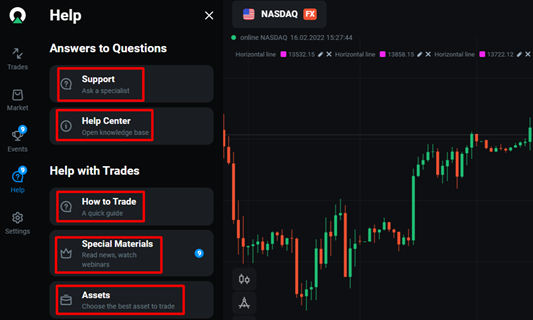You work hard to earn your money. You should be able to keep as much money in your pocket as you can. Keep some things in mind if you invest your hard-earned money to increase your net worth. Investing is not without risk. You can lose your profits by taking on some risk. However, the cost of fees and commissions can also impact your bottom line. It can add up quickly. It can all add up. The short answer to this question is yes. Continue reading to learn more about how you can keep these costs from reducing your profits.
Types of Investment Fees
Most investments require some fee. This is one of the few ways banks and other businesses can make money. These institutions can continue operating and offering their services by charging a fee. No matter how simple, every investment vehicle comes with a service fee. For example, most savings accounts charge a fee for not maintaining a minimum balance. You will also be charged a service fee if there is more than one monthly withdrawal. You pay nothing; it's your money. You can save money by opening an account.
This principle of charging a fee is universally accepted. To keep your accounts open and manage them, businesses charge money. They also charge you money to transfer your money. Sometimes, it can feel like you are paying more than what you're investing. There must be a way that keeps this to a minimum. There is. Before we explain how to keep your money in your account without excessive fees, let's look at some of the most common expenses associated with investing.
Brokerage Fee
Many financial service companies, including brokerage firms, and financial institutions, charge a brokerage fee. The fee is usually charged annually to maintain client accounts and pay for subscriptions or research. These fees can also be used to cover account closures. Brokerage fees can be either fixed or a percentage of the client's account balance.
Commissions
Clients are often charged commissions by brokers and investment advisors when they use their services. These are sometimes called trading fees. These fees are used to pay for investment advice and execution orders for purchasing or selling securities, including stocks. Options, commodities, and exchange-traded fund (ETF) fees are not included. There are many fees associated with brokerage services. They vary widely, so verify the fee schedule before using their services.

Management and Advisory Fees
Fees for management and advisory services are often charged by companies that manage investment funds. Fund managers get these fees in exchange for their knowledge and services. Although they might differ from one fund to the next, most fees are calculated as a percentage of the assets managed (also known as AUM) in each fund.
The Basics of Trading Expenses
There is no system for charging brokerage firms or investment houses trading commissions and other fees. Some brokerage firms charge high fees for every trade, while others charge very low fees depending on what level of service they offer. A discount brokerage firm might charge $10 for a common stock trading or less, while full-service brokers may charge up to $100 per trade.
Your pay depends on how many trades you make and how much money you invest. If you have only $1,000 to invest in trades and use a discount broker that charges $20 per trade, the commission takes 2% of your trade's value away when you enter your position. You will need to pay another $20 commission fee if you decide to close your trade. This is 40% of your initial cash sum. This means that you must earn at least 4% on your trade to break even and start making a profit.
This fee structure is very common, and it doesn't matter how frequently you trade. It doesn't matter how often you trade. All that matters is the percentage of profit your trades generate to pay your commission fees. One caveat is that brokerage firms may offer commission discounts for investors who make multiple trades. A brokerage firm might charge $20 per trade to its regular customers but only $10 per trade to customers who make 50 or more monthly. Investors and brokers might also agree to pay a fixed annual percentage. It doesn't matter how frequently you trade because you pay the same annual percentage.

Reduce Your Expenses
Fees are an important part of the financial system, but you don't need to pay them. There are ways to keep your expenses low and still invest. You should consider investing with a firm that does not charge commissions or fees for ETF and stock trades. This structure is being adopted by more firms, especially small businesses and new players in the industry.




